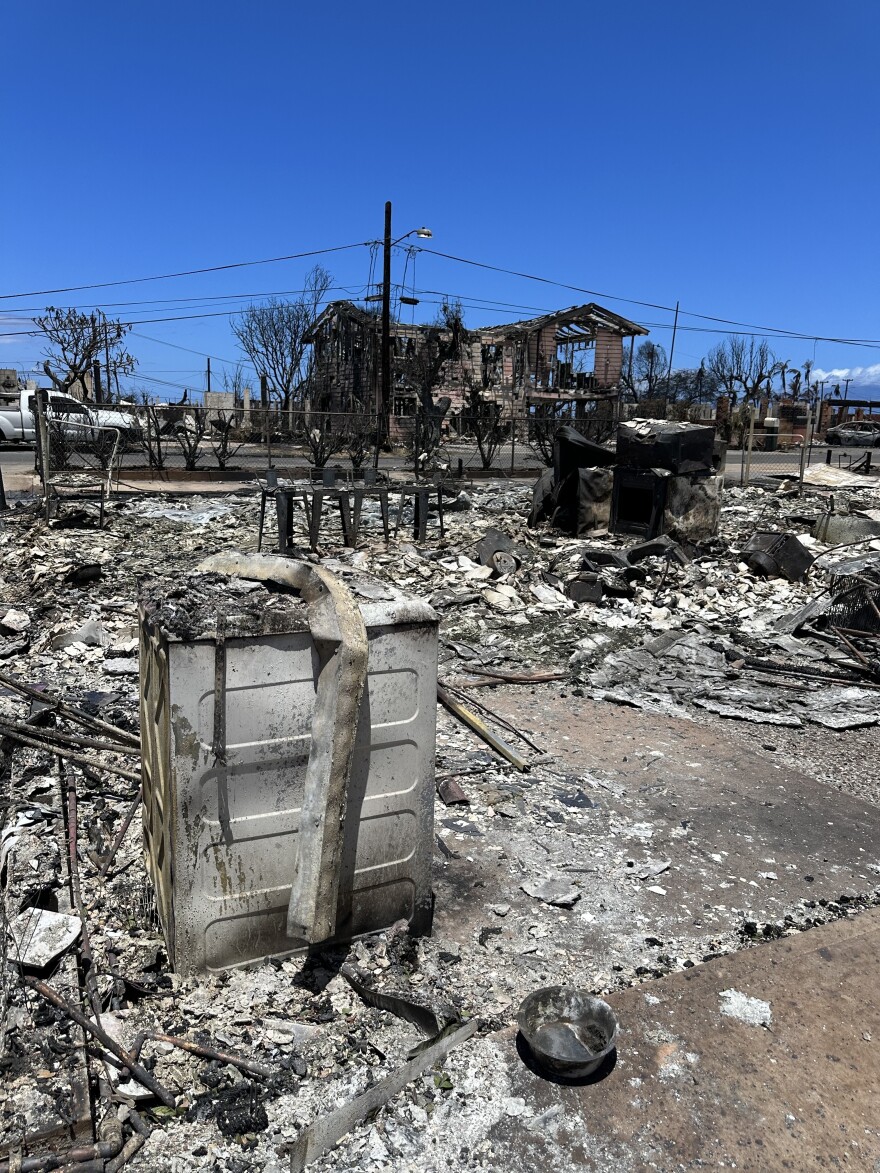When Lāhainā resident Chester Valencia bought his home in 2019, it was the perfect fit for his family. The one-story, shingle-roof home provided a sense of security for the 45-year-old.
It was nearly done with upgrades to fit his family's vision when the Aug. 8 wildfires roared through, devastating it to ruins. The only remnants recognizable, but charred, are a mailbox and four chairs.
“Our home is totally gone,” he said. “We lost everything.”

Now he's stuck with a mortgage on a home that no longer exists.
Valencia's monthly payments of about $3,100 have been temporarily paused until January, but that doesn't mean the loan has been forgiven.
"Everyone automatically thinks, 'OK, we have three months free.' And it doesn't really work that way,” Valencia explained. “You just don't have to front the money for three months. But the fourth month — when you need to go back — you will have to pay all four months in advance."
Monthly mortgages are still due as many homes have burned to the ground, leaving some Lāhainā residents worried as state officials said rebuilding the town could take three years.
President Joe Biden signed an emergency declaration for Maui residents two days after the fire. As a result, federally-backed mortgages are subject to forbearance protections, which means homeowners can request a pause on their loan payments for 90 days to 12 months.
But families who don't have federally-backed mortgages may not have those same protections, unless loan servicers are willing to provide them, according to Jeff Gilbreath, an executive director of the nonprofit mortgage lender Hawaiʻi Community Lending.
Gilbreath said the organization had reached out to 51 banks locally and nationally to take the pledge to offer mortgage forbearance for 90 days. Only six responded, including American Savings Bank, First Hawaiian Bank, Central Pacific Bank, Bank of Hawaiʻi and others.
“But all the rest of those other servicers did not take that pledge, so families may expect that their servicer is not going to outright give them that forbearance unless they request it,” he said.

He suggested that homeowners speak with the U.S. Department of Housing and Urban Development experts to ensure that the servicers are following federal guidance if the loans are federally backed.
“The clock is running, and they're likely going to need a policy solution,” Gilbreath said. “At the state level, there have been discussions in providing a foreclosure moratorium for families who have lost their homes or temporarily displaced due to smoke and fire damage.”
On a national level, state Sen. Angus McKelvey, who represents West and South Maui, sent a letter to Biden requesting a mortgage abatement program, similar to what was in place during the COVID-19 pandemic. McKelvey, who also lost his home to the fire, said he has not received a response yet.
He said the worst-case scenario is that Lāhainā residents will be forced to sell their homes.
“If we don't get some kind of an act of forbearance, one that is at the tail end of the note and hopefully interest is abated, we're going to run into a real problem of the end result that Lāhainā is for sale.”
Maui Attorney Lance Collins has requested a three-year deferment to Gov. Josh Green. He said this would allow homeowners enough time to decide what to do about their homes.
“There are very few things states can do about mortgages after a disaster because of the U.S. Constitution,” Collins said in an email. “However, the governor has powers under the emergency management law to include suspension of the foreclosure law to residential mortgages in the burnout zone as part of his emergency declaration.”
"Taking foreclosure off the table gives lenders more leverage to negotiate with their lender for deferments and loan modifications,” he continued.






